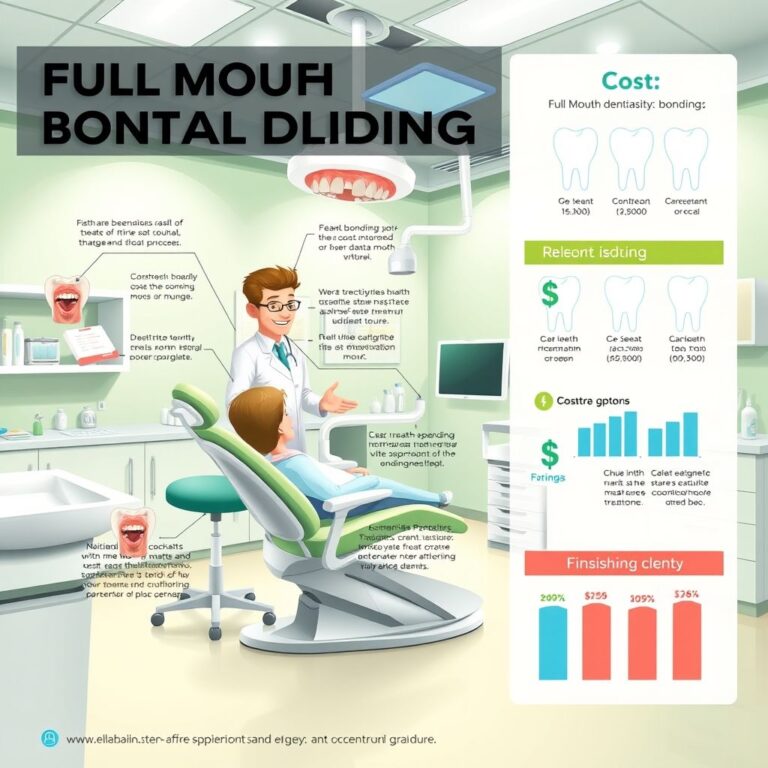dental bonding for gaps cost in india
For many, a dazzling smile is a symbol of confidence and beauty. Yet, gaps between teeth, technically known as diastema, can cast a shadow over an otherwise radiant grin. While some embrace the diastema as a unique feature, others seek solutions to close the gap and achieve a more uniform smile.
Dental bonding emerges as a popular and cost-effective option for individuals in India seeking to address minor to moderate gaps between teeth. This minimally invasive procedure utilizes a tooth-colored resin material to discreetly fill the gap, restoring both aesthetics and function.
This comprehensive guide delves into the world of dental bonding for gaps cost in india, exploring its intricacies, cost factors, and navigating the process for a gap-free, confident smile.

Understanding Dental Bonding: A Resin Revolution
Dental bonding, also known as composite bonding, is a cosmetic dental procedure that utilizes a composite resin material to address various aesthetic concerns. In the case of gaps between teeth, the dentist skillfully applies the resin to the tooth surfaces flanking the gap. The resin is meticulously sculpted to seamlessly blend with the surrounding tooth structure, effectively closing the gap and creating a natural-looking, uniform smile.
Here’s a breakdown of the dental bonding process:
- Consultation and Examination: The journey begins with a comprehensive consultation with your dentist. They will meticulously examine your teeth to assess the severity of the gap, your overall oral health, and suitability for dental bonding.
- Shade Selection: A crucial step involves selecting a shade of composite resin that perfectly matches the color of your natural teeth. This ensures a seamless and aesthetically pleasing restoration.
- Tooth Preparation: Minimal tooth preparation might be required in some cases. Your dentist will gently roughen the tooth surfaces to enhance the bonding process.
- Resin Application: The dentist meticulously applies the composite resin to the tooth surfaces flanking the gap. They meticulously sculpt the material to achieve the desired shape and size, ensuring a natural look and proper bite function.
- Curing and Polishing: Once sculpted, the resin is hardened using a special light. Finally, the bonded area is polished to a smooth, gleaming finish, mimicking the texture of your natural teeth.
Unveiling the Cost of Dental Bonding in India: A Spectrum of Factors
The cost of dental bonding in India can vary depending on several factors. Here’s a breakdown of the key influencers:
- Dentist’s Expertise and Experience: A dentist with extensive experience in cosmetic dentistry procedures might command a higher fee compared to a less experienced one.
- Location: Dental bonding costs might differ based on the geographical location of the dental clinic. Metropolitan cities generally have higher costs compared to smaller towns.
- Complexity of the Case: The size and severity of the gap significantly impact the cost. Larger gaps or those requiring additional procedures like enamel etching might incur higher charges.
- Material Quality: The type and brand of composite resin used can influence the price. High-quality, long-lasting materials might cost slightly more but offer superior aesthetics and durability.
- Number of Teeth Bonded: The cost is directly proportional to the number of teeth requiring bonding. Addressing a single gap will cost less compared to multiple gaps.
Table 1: Estimated Cost Range of Dental Bonding in India
| Factor | Estimated Cost Range (INR) |
|---|---|
| Single Tooth Bonding | 2,000 – 6,000 |
| Multiple Teeth Bonding | 4,000 – 12,000+ |
drive_spreadsheetExporter vers Sheets
Important Note: The cost figures mentioned above are for general information purposes only. To obtain an accurate estimate for your specific case, schedule a consultation with a qualified dentist.
Beyond the Cost: Additional Considerations for Dental Bonding
While cost is a crucial factor, other aspects deserve consideration when opting for dental bonding:
- Durability: Dental bonding typically lasts 3-7 years, depending on factors like bite pressure, maintenance practices, and the type of resin used.
- Suitability: Dental bonding might not be suitable for large gaps or heavily chipped teeth. In such cases, alternatives like veneers or crowns might be recommended.
- Maintenance: Regular brushing, flossing, and maintaining good oral hygiene are essential to ensure the longevity of the bonding.
- Staining: Composite resin is susceptible to staining from beverages like coffee, tea, or red wine. Maintaining a healthy diet and avoiding excessive consumption of staining foods and drinks is crucial.
Navigating the Dental Bonding Process in India: A Step-by-Step Guide
The journey towards a gap-free smile with dental bonding can be streamlined by following these steps:
- Research and Choose a Qualified Dentist: Seek recommendations from friends, family, or your regular dentist. Research potential dentists online, focusing on their qualifications, experience in cosmetic dentistry, and patient reviews. Schedule consultations with a few shortlisted dentists to discuss your concerns and get a feel for their approach.
- Consultation and Treatment Plan: During the consultation, the dentist will thoroughly examine your teeth, assess the gap, and discuss your expectations. They will explain the bonding procedure in detail, address any concerns you might have, and outline the estimated cost.
- The Bonding Procedure: On the designated appointment day, the dentist will meticulously follow the steps mentioned earlier – shade selection, minimal tooth preparation (if needed), resin application and sculpting, curing and polishing.
- Post-operative Care and Follow-up: The dentist will provide you with post-operative care instructions to ensure optimal healing and longevity of the bonding. Regular dental checkups and cleanings remain crucial to maintain good oral hygiene and the overall health of your bonded teeth.
Exploring Alternatives: When Dental Bonding Might Not Be the Answer
While dental bonding offers a minimally invasive and cost-effective solution for minor to moderate gaps, it might not be the ideal choice for everyone. Here are some scenarios where alternative treatments might be recommended:
- Large Gaps: Dental bonding might not provide sufficient structural support for closing very large gaps. In such cases, veneers or crowns, which are stronger and more durable, might be a better option.
- Heavily Chipped Teeth: If the teeth flanking the gap are significantly chipped or damaged, bonding might not restore the desired aesthetics and functionality. Veneers or crowns can offer a more comprehensive restoration in such situations.
- Severe Staining: If the existing teeth are heavily stained, achieving a perfect color match with the bonding material can be challenging. In such cases, veneers can provide more control over the final color outcome.
- Bruxism (Teeth Grinding): Individuals with bruxism tend to grind or clench their teeth, which can put excessive pressure on bonded teeth and lead to chipping or breakage. Alternatives like crowns might be more suitable for such individuals.
Illuminating Your Smile: The Confidence that Comes with Dental Bonding
Dental bonding in India offers a compelling solution for individuals seeking to address minor to moderate gaps between teeth. This minimally invasive and cost-effective procedure can significantly enhance your smile’s aesthetics, boosting your confidence and overall well-being.
By understanding the procedure, cost factors, and considerations, you can make an informed decision about whether dental bonding aligns with your goals and budget. Remember, a consultation with a qualified and experienced dentist is the first step towards achieving your dream smile.
Frequently Asked Questions (FAQs)
Q: Does dental bonding hurt?
A: The procedure itself generally involves minimal discomfort. Local anesthesia can be used to numb the area if needed. There might be some mild sensitivity after the procedure, which usually subsides within a few days.
Q: How long does dental bonding last?
A: Dental bonding typically lasts 3-7 years, depending on various factors like care practices, bite pressure, and the type of resin used.
Q: Can I eat and drink normally after dental bonding?
A: You might need to avoid certain foods and drinks that can stain the bonding material for the first 24-48 hours. Your dentist will provide specific recommendations on dietary restrictions.
Q: What are the alternatives to dental bonding for gap closure?
A: Alternatives include veneers, crowns, and orthodontic treatment (braces or invisaligners). The best option depends on the severity of the gap, your budget, and your overall dental health.
Q: How can I care for my bonded teeth?
A: Maintain good oral hygiene by brushing twice daily, flossing regularly, and attending regular dental checkups and cleanings. Avoid excessive consumption of staining foods and drinks.
Additional Resources
- Indian Dental Association: https://ida.org.in/
- American Academy of Cosmetic Dentistry: https://aacd.com/
Disclaimer: This article is intended for informational purposes only and should not be construed as medical advice. Please consult with a qualified dentist to discuss your specific needs and treatment options.


